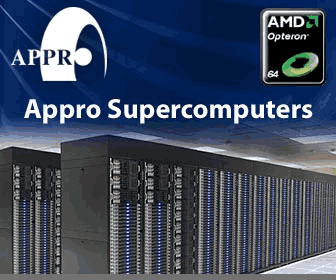ACADEMIA
Learn about NSF Funding Opportunities for Cross-Cutting, Innovative Research
CDI Webcast: Thursday, Nov. 29, 2007, 1 to 3 p.m. On Thursday, Nov. 29, 2007, from 1 to 3 p.m. EST, the National Science Foundation (NSF) will conduct a webcast about its new cross-cutting funding opportunity, Cyber-Enabled Discovery and Innovation (CDI). The webcast will be accessible at http://tvworldwide.com/events/nsf/071129/.  The webcast is in advance of the first competition's deadlines for required letters of intent on Nov. 30, 2007, and preliminary proposals on January 8, 2008. The three CDI program officers--Sirin Tekinay, Thomas Russell, and Eduardo Misawa--will open the webcast with a 30-minute presentation about the premiere of this NSF initiative. The remaining time will be available for questions from the audience, which may be communicated via the Web (http://tvworldwide.com/events/nsf/071129/), e-mail (cdi@nsf.gov), or telephone (703-292-8080). CDI is NSF's bold, five-year initiative to create revolutionary science and engineering research outcomes made possible by innovations and advances in computational thinking. Computational thinking is comprehensively defined to encompass computational concepts, methods, models, algorithms and tools. Applied in challenging science and engineering research and education contexts, computational thinking promises a profound impact on the nation's ability to generate and apply new knowledge. Collectively, CDI research outcomes are expected to produce paradigm shifts in the understanding of a wide range of science and engineering phenomena and socio-technical innovations that create new wealth and enhance the national quality of life. All NSF directorates and programmatic offices are participating.
The webcast is in advance of the first competition's deadlines for required letters of intent on Nov. 30, 2007, and preliminary proposals on January 8, 2008. The three CDI program officers--Sirin Tekinay, Thomas Russell, and Eduardo Misawa--will open the webcast with a 30-minute presentation about the premiere of this NSF initiative. The remaining time will be available for questions from the audience, which may be communicated via the Web (http://tvworldwide.com/events/nsf/071129/), e-mail (cdi@nsf.gov), or telephone (703-292-8080). CDI is NSF's bold, five-year initiative to create revolutionary science and engineering research outcomes made possible by innovations and advances in computational thinking. Computational thinking is comprehensively defined to encompass computational concepts, methods, models, algorithms and tools. Applied in challenging science and engineering research and education contexts, computational thinking promises a profound impact on the nation's ability to generate and apply new knowledge. Collectively, CDI research outcomes are expected to produce paradigm shifts in the understanding of a wide range of science and engineering phenomena and socio-technical innovations that create new wealth and enhance the national quality of life. All NSF directorates and programmatic offices are participating.
CDI seeks ambitious, transformative, multidisciplinary research proposals within or across the following three thematic areas: (1) From Data to Knowledge: enhancing human cognition and generating new knowledge from a wealth of heterogeneous digital data; (2) Understanding Complexity in Natural, Built, and Social Systems: deriving fundamental insights on systems comprising multiple interacting elements; and (3) Building Virtual Organizations: enhancing discovery and innovation by bringing people and resources together across institutional, geographical and cultural boundaries.
 The webcast is in advance of the first competition's deadlines for required letters of intent on Nov. 30, 2007, and preliminary proposals on January 8, 2008. The three CDI program officers--Sirin Tekinay, Thomas Russell, and Eduardo Misawa--will open the webcast with a 30-minute presentation about the premiere of this NSF initiative. The remaining time will be available for questions from the audience, which may be communicated via the Web (http://tvworldwide.com/events/nsf/071129/), e-mail (cdi@nsf.gov), or telephone (703-292-8080). CDI is NSF's bold, five-year initiative to create revolutionary science and engineering research outcomes made possible by innovations and advances in computational thinking. Computational thinking is comprehensively defined to encompass computational concepts, methods, models, algorithms and tools. Applied in challenging science and engineering research and education contexts, computational thinking promises a profound impact on the nation's ability to generate and apply new knowledge. Collectively, CDI research outcomes are expected to produce paradigm shifts in the understanding of a wide range of science and engineering phenomena and socio-technical innovations that create new wealth and enhance the national quality of life. All NSF directorates and programmatic offices are participating.
The webcast is in advance of the first competition's deadlines for required letters of intent on Nov. 30, 2007, and preliminary proposals on January 8, 2008. The three CDI program officers--Sirin Tekinay, Thomas Russell, and Eduardo Misawa--will open the webcast with a 30-minute presentation about the premiere of this NSF initiative. The remaining time will be available for questions from the audience, which may be communicated via the Web (http://tvworldwide.com/events/nsf/071129/), e-mail (cdi@nsf.gov), or telephone (703-292-8080). CDI is NSF's bold, five-year initiative to create revolutionary science and engineering research outcomes made possible by innovations and advances in computational thinking. Computational thinking is comprehensively defined to encompass computational concepts, methods, models, algorithms and tools. Applied in challenging science and engineering research and education contexts, computational thinking promises a profound impact on the nation's ability to generate and apply new knowledge. Collectively, CDI research outcomes are expected to produce paradigm shifts in the understanding of a wide range of science and engineering phenomena and socio-technical innovations that create new wealth and enhance the national quality of life. All NSF directorates and programmatic offices are participating.

